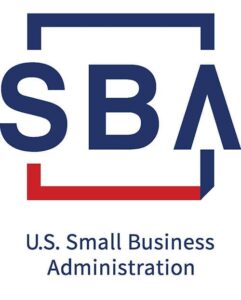
A SOPHISTICATED MARKET LOOKING FOR HIGH-QUALITY PRODUCTS
South Korea’s strong economy is a promising target for Wisconsin exports. In spite of the pandemic, this market anticipates solid economic growth for 2022 and seeks the types of products that represent Wisconsin’s strengths, including agriculture, advanced manufacturing, food and beverage, and biohealth industries. South Korea’s leadership anticipates that technology intensive industries will drive its economy’s growth. Customers in the market tend to be affluent, and they value U.S.-made products for their outstanding quality.
South Korea is a top 10 trading partner with Wisconsin; it purchased $570 million worth of Wisconsin goods in 2021 and ranked 10th among Wisconsin’s export destinations.
To further develop trade opportunities, the Wisconsin Economic Development Corporation (WEDC) will lead a global trade venture to South Korea in September 2022. For each Wisconsin business that participates, WEDC’s trade representatives in those markets will screen for the best partners, which could include distributors, agents and potential customers. WEDC will handle all arrangements to get Wisconsin participants to business meetings, and will assign interpreters to accompany them. The interpreters will not only facilitate communication during the meetings but will also provide cultural and business insights relating to the market. The arrangements by WEDC will allow Wisconsin business leaders to focus on the details of potential partnerships rather than dealing with logistics and scheduling.
SOUTH KOREA OUTLOOK
South Korea is the tenth-largest economy in the world, with a GDP of $1.8 billion in 2021, representing 4% increased over 2020, it is expected to expand by 2.8% in 2022, according to the International Monetary Fund. The U.S. is South Korea’s second-largest trading partner, after China.
More than half of South Korea’s population of 51 million lives in or around the capital city of Seoul. Home to popular global brands such as Samsung, LG, Hyundai and Kia, South Korea is often named as the most innovative country in the world, ranked #1 in the 2021 Bloomberg Innovation Index.
The country has a tech-savvy, upwardly mobile population and its consumers recognize the U.S. as a supplier of high-quality products with good value. In 2020, South Korea’s government released a Korean New Deal stimulus package with a price tag of $160 billion, to be invested by 2025. About $58 billion will go toward new digital products, $73 billion for green energy projects and $28 billion to strengthen employment security. The plans followed a 2018 revision to the U.S.-South Korea Free Trade Agreement that helps to encourage trade between the two nations.
South Korea is the world’s seventh-largest exporter and ninth-largest importer, according to the World Trade Organization. Its main imports are electronic equipment and petroleum and other fossil fuels. South Korea also welcomes advanced technology in industries that include medical devices and precision medicine, aerospace and defense, and environmental technology. South Korea’s $570 million worth of imports from Wisconsin businesses in 2021 was a 35% jump from the $421 million worth of Wisconsin products that it purchased in 2011. As of Jan. 1, 2020, 98.8% of U.S. products enter South Korea duty-free.
KEY INDUSTRY TARGETS
- Agriculture, the United States is the leading supplier of imported consumer-oriented agricultural products to the Korean retail industry, shipping a record $5.4 billion in 2020. The outlook for U.S. products in the Korean retail industry is excellent for a wide range of products, including beef, pork, processed meat, seafood, vegetables, fruits, nuts, dairy products, juices and soft drinks, alcoholic beverages, condiments, and sauces, processed organic foods, coffee, bakery products, snacks and confectioneries. Ongoing socio-economic shifts coupled with elevated consumer attention to quality and value will generate new opportunities for U.S. food and agricultural products in Korea for years to come.
- Advanced manufacturing, including aerospace; machinery and tools; and energy, power and controls. Wisconsin is a global center for energy, power and control. Electrical machinery and control manufacturing is one of the state’s fastest-growing industrial sectors. South Korea is focused on continuing to build its advanced manufacturing technology, so the demand for specialized machinery and tools is expected to rise. The market is also developing renewable energy.
- Food and beverages, including food and agricultural products and food processing equipment. The U.S. is the leading exporter of food and agricultural products to South Korea. Wisconsin is the market leader in cheese sales to those markets; Wisconsin also is the largest producer of cranberries and ginseng, which are popular among residents there. As the economy of South Korea grows and more residents add to their wealth, they are able to pay more attention to quality food products. Young consumers, some of whom are educated in Western countries, bring back the tastes and food culture to their homeland.
- Biohealth, including medical devices, pharmaceuticals and biotechnology. The U.S. is the major source of advanced medical products sold to South Korea and Wisconsin is a global leader in biohealth products and services. South Korea imports most of its high-end biohealth products from overseas, partly because many of its physicians are educated in the U.S. and Europe.
Wisconsin businesses that choose to participate in the upcoming trade venture can gain access to established trading partners with sophisticated markets and strong economies, offering diversified opportunities. Wisconsin companies can expect to encounter competition from both domestic and foreign suppliers, but firms that are innovative, patient and committed to participating in the South Korean market will likely find those opportunities to be rewarding. Wisconsin companies, though, should have a good understanding of the export process and be prepared to modify their products to conform with the demands and the tastes of consumers in South Korea.

